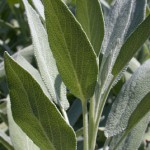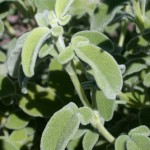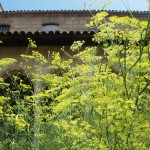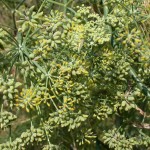Salvia, Save Us
 |
 |
 |
Sage, known by Latin epithets such as Salvia salvatrix, was a healing plant of great renown throughout the Middle Ages, although it was also valued as a culinary herb. Above, left: Salvia officinalis, the common garden sage, growing in a bed devoted to kitchen plants in Bonnefont garden; center: a detail from The Unicorn is Found, showing Salvia officinalis in flower; right: Greek sage or three-lobed sage (Salvia fruticosa) is not hardy in our climate, and is grown in pots and brought under cover in winter. The medicinal properties of this species were celebrated in antiquity and were conflated with those of S. officinalis.
Why should a man die in whose garden grows sage?
Against the power of death there is not medicine in our gardens
But Sage calms the nerves, takes away hand
Tremors, and helps cure fever.
Sage, castoreum, lavender, primrose,
Nasturtium, and athanasia cure paralytic parts of the body.
O sage the savior, of nature the conciliator!???From Page Ten of the Regimen Sanitatis Salernitanum (A Salernitan Regimen of Health). See the Gode Cookery website to read the entire poem.
Cur moriatur homo cui salvia crescit in horto? (Why should a man die who has sage growing in his garden?) This much-quoted Latin adage is from the famous medieval didactic poem on maintaining good health, the Regimen Sanitatis Salernitanum. Read more »



